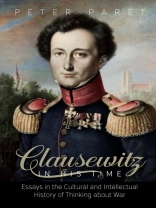Anything but a detached theorist, Clausewitz was as fully engaged in the intellectual and cultural currents of his time as in its political and military conflicts. Late-eighteenth century thought helped shape the analytic methods he developed for the study of war. The essays in this volume follow his career in a complex military society, together with that of other students of war, both friends and rivals, providing a broad perspective that leads to significant documents so far unknown or ignored. They add to our understanding of Clausewitz’s early ideas and their expansion into a comprehensive theory that continues to challenge our thinking about war today.
Jadual kandungan
List of Illustrations
Acknowledgments
Introduction
- Text and Context: Two Ways to Clausewitz
- A Learned Officer among Others
- Frederick the Great and his Interpreters Clausewitz and Schlieffen – Three Phases in the History of Strategy
- From Ideal to Ambiguity: Johannes von Müller, Clausewitz, and the People in Arms
- Half against my Will I have become a Professor”
- Two Historians on Defeat and Its Causes
Bibliography
Index
Mengenai Pengarang
Peter Paret (1924-2020) was Professor emeritus of the Institute for Advanced Study. Among his works on military history and on European culture in the 18th to the 20th century are a biography, Clausewitz and the State, now in its fourth expanded edition, and the translation, with Michael Howard, of Clausewitz’s On War. He was a Fellow of the American Academy of Arts and Sciences, a member of the American Philosophical Society and recipient of its Thomas Jefferson Medal, an Honorary Fellow of the London School of Economics, and an Honorary Member of the German Clausewitz Society. The German government awarded him the Grand Cross of the Order of Merit.












